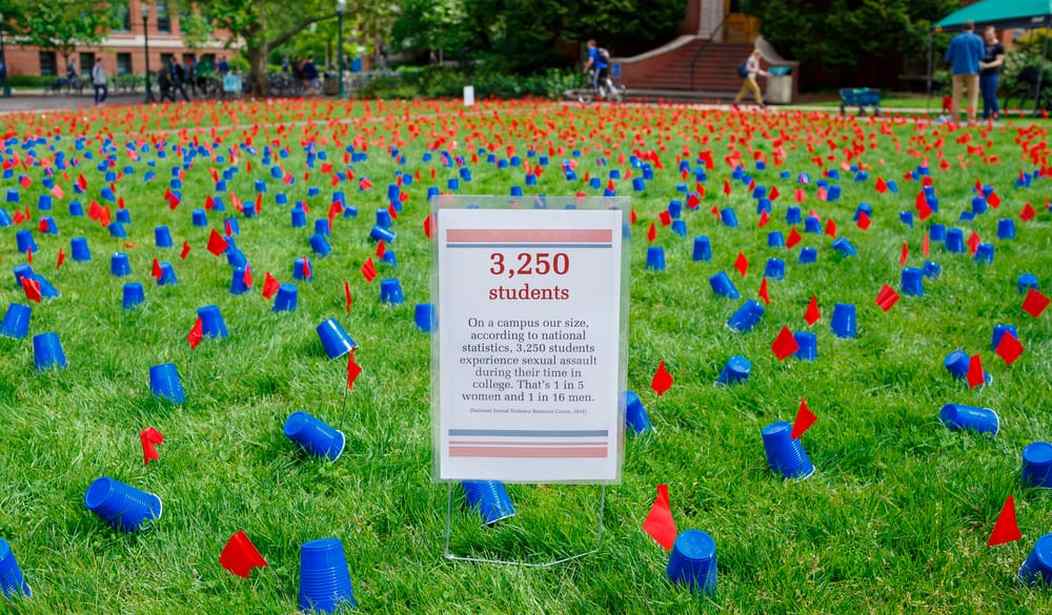While a lot of digital ink has been spread on these pages regarding the negative impact of Title IX on men’s due process rights, it is important to remember that rape is a horrific crime that happens to far too many women each year — more than zero being far too many.
But the claim that massive numbers of women are sexually assaulted on college campuses is simply not true. And that false “one in four” figure is creating real anxiety in many college women:
What I’m talking about has a technical name: It’s rape anxiety. It’s the anxiety, the mundane, common anxiety — when you’re walking, when you’re going somewhere new, whatever — that there is a danger you could get raped. But more simply, what it feels like is fear. It feels like not being comfortable walking back to your own dorm, your home, and it feels like looking over your shoulder because it’s after 8 p.m. I keep telling myself that I’m overreacting, that really, the chances are so slim — but then I’m alone and walking to Toyon to do a p-set, and everything looks sinister in the orange street lights. It’s almost comical, except it’s not at all.
A lot has been said about the system, the culture, the beliefs that allow sexual assault to continue, and a lot has been written about the details about the assault itself. But this is smaller, and it’s less particular. It’s a general feeling of fear — it’s having to weigh the chance that you won’t be safe when deciding if you want to go to a meeting across campus at 9:30 p.m. And the more I talk about it with my friends, that more we kept coming back to the same ideas: It is so real to us, this fear. Whether you knew the term or not, we all knew the feeling — all feel it more often than would seem rational. And it’s not fair.
It’s not surprising that many women feel this way. After all, if one-quarter of the women in college are sexually assaulted, that means in your circle of friends, at least one of you will be the victim, right?
Well, as Heat Street points out, maybe not:
Karturi’s description of fear is even sadder, considering the misleading statistics so many universities commonly use to talk about sexual assault. A much-hyped 2015 study by the Association of American Universities claimed that roughly one in four female college undergraduates had suffered sexual assault or misconduct.
But the survey’s definitions are broad. For example, an unwanted butt slap is factored into that one-in-four number just like rape, even though there’s a world of difference between the two.
As the Daily Beast noted at the time, the U.S. Department of Justice reached totally different conclusions about sexual assault on campus. A 2014 report suggested that actually, about one in 53 women on campus experience rape or sexual assault.
Critics argue that the DOJ’s numbers aren’t accurate because many rapes aren’t reported. That is certainly true — but the wide discrepancy at least indicates that the AAU survey unnecessarily terrified a generation of women. That anxiety negatively impacts their life in a number of ways.
If feminists care about women more than the “cause,” perhaps they should be setting the record straight about the real level of danger out there.









Join the conversation as a VIP Member